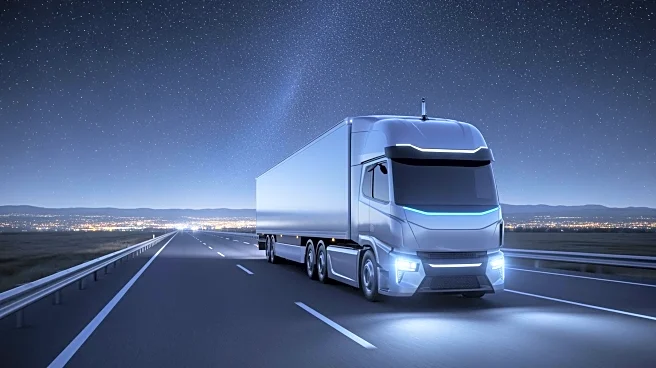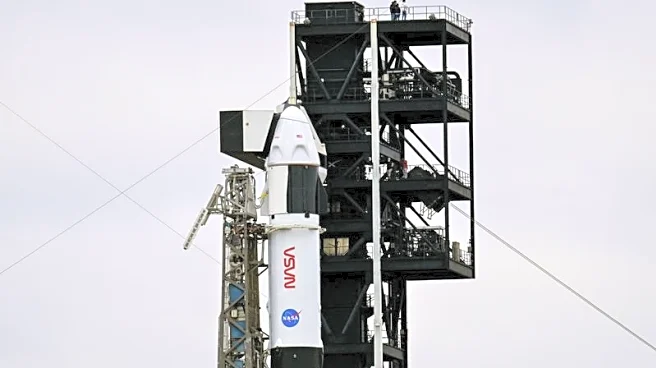What's Happening?
Waabi, a company specializing in autonomous trucking technology, has announced the completion of its integration with Volvo Autonomous Solutions, marking a significant step towards the commercial deployment
of driverless trucks. The partnership, initiated in February, aims to develop and deploy autonomous transportation solutions, integrating Waabi's virtual driver system into Volvo's VNL Autonomous truck. Waabi's founder and CEO, Raquel Urtasun, highlighted the importance of safe, scalable technology and purpose-built hardware for autonomous operations. The company plans to operate driverless trucks on surface streets in Texas, with nationwide expansion anticipated in the coming years. This development is part of a broader trend in the trucking industry, where autonomous driving systems are increasingly being deployed, raising concerns about safety and workforce impacts.
Why It's Important?
The advancement of autonomous trucking technology has significant implications for the U.S. transportation industry. Autonomous trucks promise increased safety, efficiency, and capacity, potentially transforming freight logistics. However, the rapid deployment of these systems raises concerns about road safety and the displacement of truck drivers, which could impact the economy and the trucking workforce. Organizations like the Owner-Operator Independent Drivers Association (OOIDA) advocate for mandatory testing and safety requirements to ensure the reliability of autonomous technology. The collaboration between Waabi and Volvo represents a critical step in addressing these challenges, aiming to create a more resilient future for freight transportation.
What's Next?
Waabi plans to expand its driverless truck operations beyond Texas, with a nationwide rollout expected in the coming years. This expansion will likely involve further collaboration with industry stakeholders to address safety concerns and regulatory requirements. The U.S. Department of Transportation may play a role in establishing guidelines for autonomous vehicle deployment, balancing innovation with public safety. As the technology progresses, the trucking industry will need to adapt to changes in workforce dynamics and operational practices, potentially leading to new job opportunities in technology and logistics.
Beyond the Headlines
The shift towards autonomous trucking could have long-term implications for the U.S. economy and labor market. While automation may improve efficiency and reduce costs, it also poses ethical and social challenges, such as job displacement and the need for retraining programs. The integration of AI and machine learning in transportation systems highlights the growing importance of technology in shaping future industries. As autonomous vehicles become more prevalent, discussions around data privacy, cybersecurity, and infrastructure development will become increasingly relevant.










